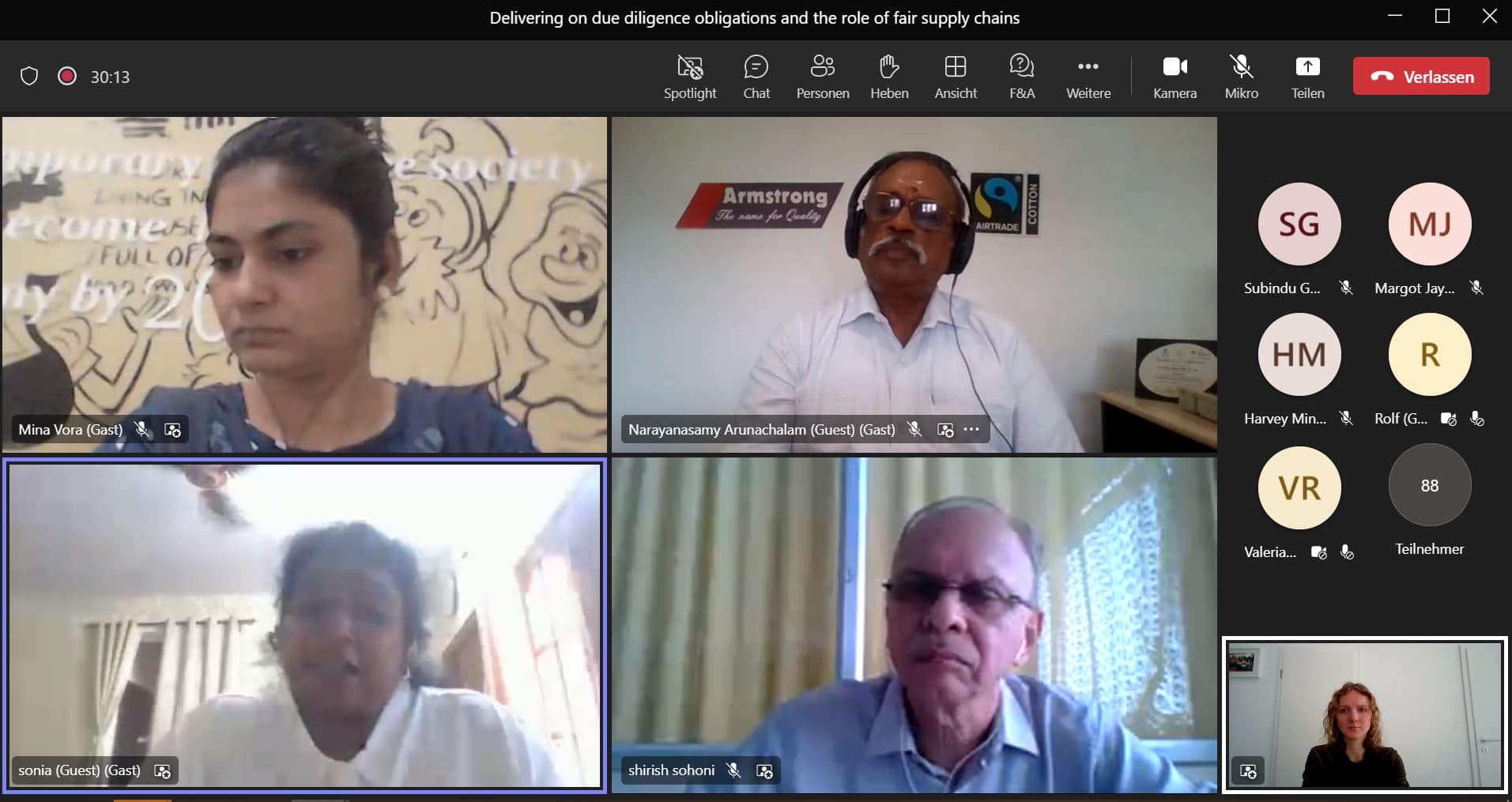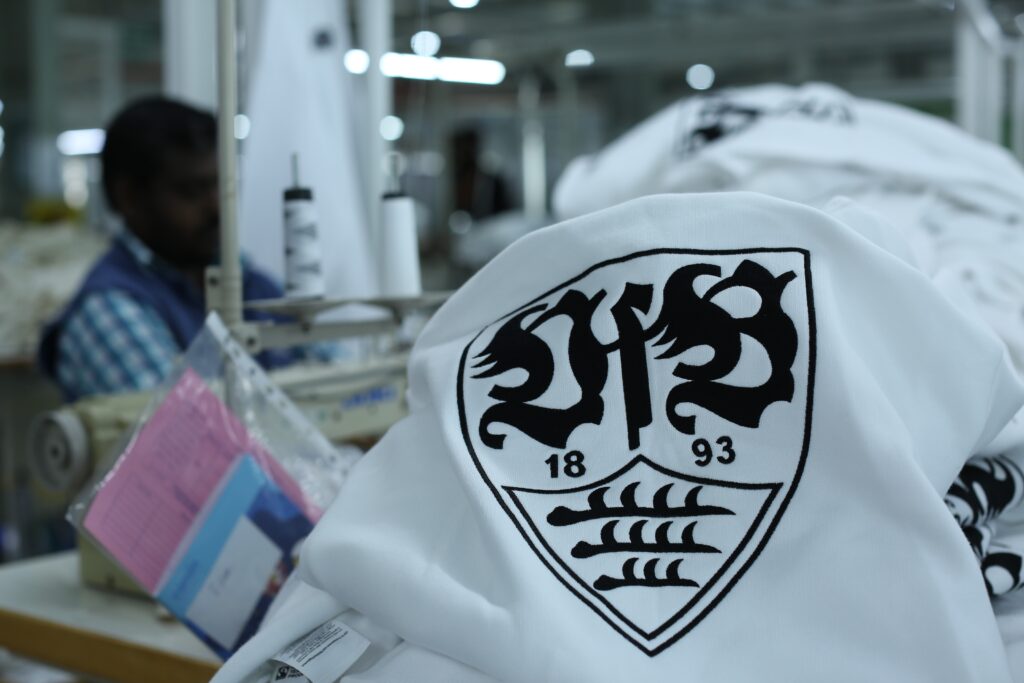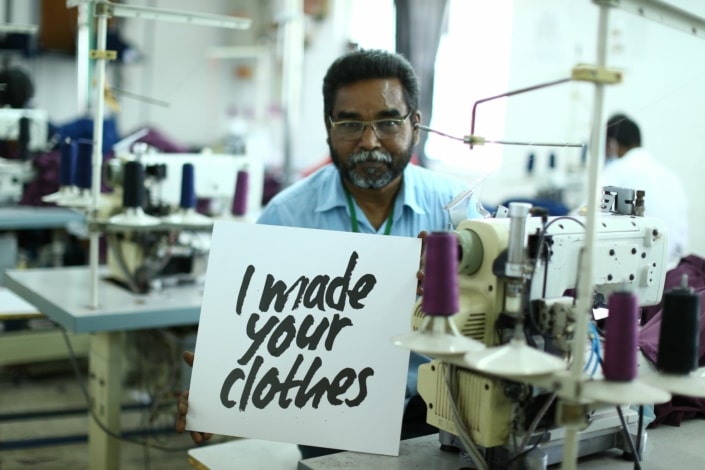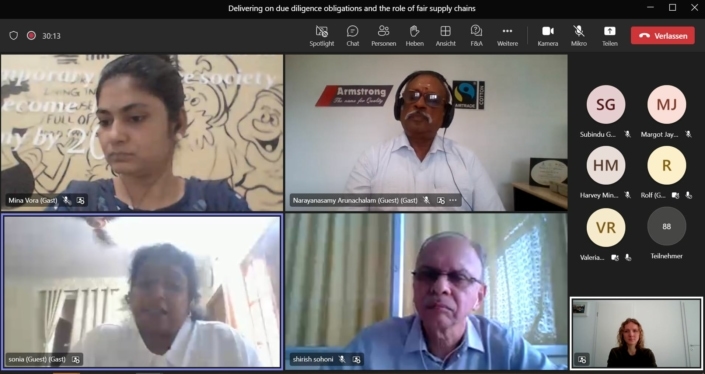16 February 2023
Delivering on due diligence obligations and the role of fair supply chains
On 15th February, we were invited by Fairtrade as panel speaker on the Outline OECD side session Delivering on due diligence obligations and the role of fair supply chains. Together with representatives of Armstrong Spinning Mills Pvt. Ltd., Purecotz Eco Lifestyles Pvt. Ltd. and one of our long term cotton producers Rapar and Dhrangadhra Farmers Producers Company Ltd., we shared our experience to 130 virtual participants on creating supply chains, the success stories, and the major challenges. We do value such opportunities to interact with our partners as they strengthen our relationship and help us to fulfill our corporate due diligence obligations.

All panel speakers are supporting the Fairtrade system since many years and underlined how the standard helps to implement fair prices for cotton products and to create sustainable supply chains. All agreed that transparency is crucial when it comes to building up such value chains. At the same time, this is one of the major challenges since textile supply chains are complex and widely spread. Tier 1 supplier are often not directly sourcing from the deeper supply chain and need to investigate and precisely track down to identify the origin of the raw cotton. Certification systems like Fairtrade or GOTS help a lot in this regard since they make the supply chain partners visible.
When it comes to living wages, all panel speakers agreed that it is an important and necessary development to raise textile worker’s wages. However, there is a variety of challenges for all supply chain partners to implement those. Producers underlined that the support and commitment of brands is urgently needed if wages shall be increased systematically and constantly. We shared our experience on implementing living wages within the Fairtrade Textile Production Standard. The certification allows us 6 years to establish living wages throughout the certified supply chain. At the same time it strengthens workers rights by building up strong worker committees. More information can be found in our sustainability report.
Finally, all of us agreed on the need for fair supply chains in order to create a sustainable textile industry where human rights of workers are respected.


